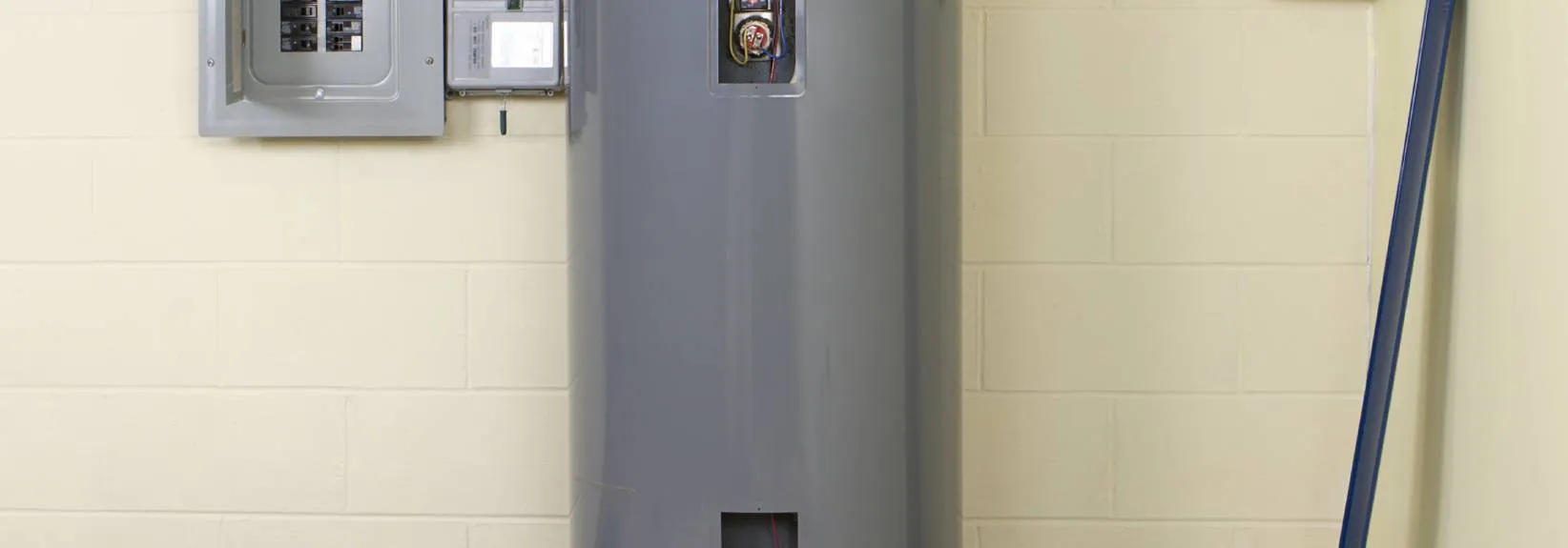Based on your location, mild weather or extreme cold may be ordinary in the wintertime. In either case, your water heater has to work harder when the temperature drops outside the house. This prompts the question — can water heaters freeze?
While relatively rare, it’s actually not impossible for a water heater to freeze. The leading concern is that any standing water on the inside of the tank or tankless unit will freeze and expand, permanently damaging the appliance at the same time. If this happens, you may be left with no alternative but to replace the water heater.
Today’s water heaters are built to be operational despite how cold the temperature drops. Nonetheless, it never hurts to take safeguards if sub-zero temperatures are in the forecast, especially if your water heater is set up outside.
Drain the Water Heater
Before going away on an extended trip this winter, think about emptying the water heater to bypass a plumbing emergency while you’re away. You might also wish to drain the tank if power is lost to avoid possible freezing. To provide greater comfort and security, you might choose to install a freeze protection solenoid valve, which opens conveniently and drains the water heater during a power outage.
Here’s how to drain a water heater tank by hand:
-
- Shut off the cold-water supply valve, gas supply valve, and temperature control knob.
-
- Flip the circuit breaker providing electricity to the water heater.
-
- Attach a hose to the drain valve or place a bucket under it to capture the water.
-
- Open the valve to begin the flow of water.
-
- Don’t stop draining until the tank is empty, then close the valve.
Let the Water Run – A Little
Give some thought to keeping a trickle of hot water flowing from a faucet or two until the cold snap subsides. The small increase you’ll likely see on your next water bill is well worth avoiding a frozen water heater. This method also helps prevent frozen and burst pipes.
Install Insulation
Plumbing insulation comes in many forms. You can insulate your water heater tank with a specific blanket to help reduce standby heat loss and offer protection against cold weather.
Obviously, pipes are more likely to freeze than water heaters. In addition to running a trickle of hot water, you can cover exposed pipes situated outside or along exterior walls by wrapping them in foam insulation. You can also install electric heat tape to keep the pipes just above freezing. Only a few types of heat tape are compatible with insulation, so read the directions for use carefully if you plan to use them together.
Put in a Hot Water Recirculation System
The main objective of this system is to transfer hot water to the tap quicker, decreasing the wait time and reducing the quantity of water that is wasted down the drain. A hot water recirculation system is simple, water-wise and energy-efficient. It also keeps your pipes warm in the winter and makes your tankless water heater less prone to freezing. These combined benefits could justify the installation cost, especially in cold climates.
Choose a Suitable Installation Spot
Almost all North American homes have indoor water heaters. However, in mild southern climates, water heaters are sometimes installed in the garage or even outside. While this approach is fine for those climates, the occasional deep freeze can have ruinous effects on outdoor water heaters. Because of this, you should insist that your next water heater be placed inside, or at minimum in a covered area sheltered from the wind.
Choose a Water Heater with Built-In Freeze Safeguards
The majority of tankless water heaters have built-in freeze protection that works in temperatures down to -22 degrees F. Don’t buy a tankless water heater without this feature, especially if the only choice is to install it outside.
Different brands use different freeze-prevention methods. Some have an electric element that yields an adequate amount of heat to protect against internal freezing. Others fire up the gas burners to warm a small amount of water and, in turn, keep the tankless cabinet frost-free.
Whatever the method, water heater freeze protection is only effective when utilized. First, check the unit to make sure this feature is activated. Then, for protection during a blackout, think about buying a small portable generator, whole-home standby generator, or battery backup power supply for your tankless water heater.
Schedule Water Heater Services
For answers to questions about your pipes or water heater potentially freezing this winter, turn to Service Experts Heating & Air Conditioning. Our well-trained plumbers can accomplish any
water heater repair or replacement you need. We can also recommend steps to help your pipes and plumbing appliances last longer in any weather. For more information or to plan a visit, please contact a
Service Experts office near you today.



